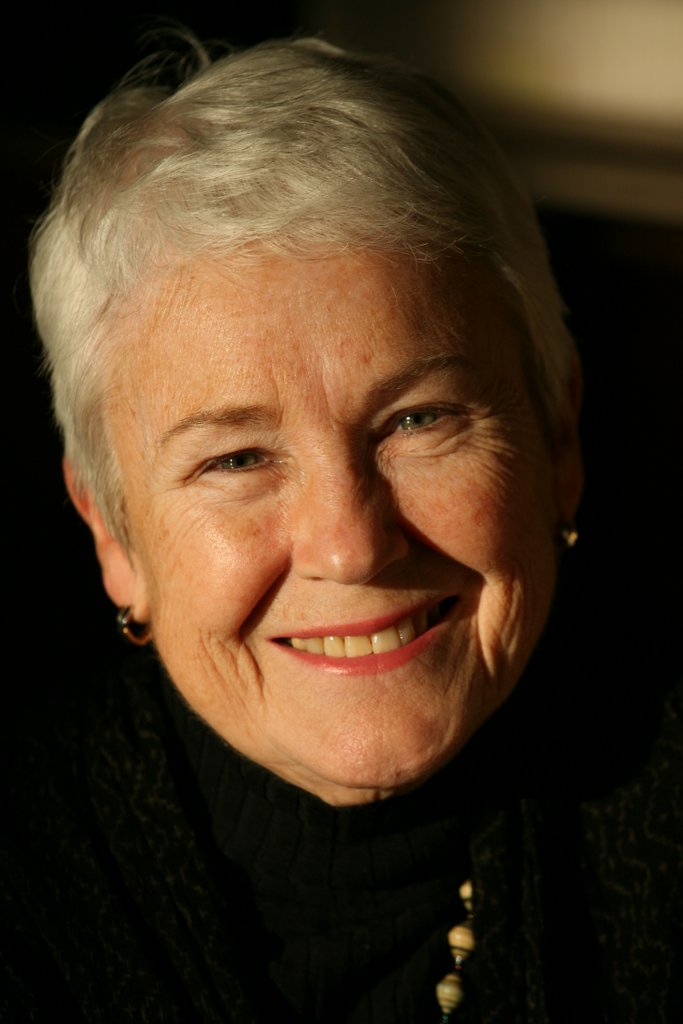The weekly TGCvocations column asks practitioners about their jobs and how they integrate their faith and work. Interviews are condensed.
Luci Shaw was born in London, England, in 1928 and now lives in Bellingham, Washington. A poet and essayist since 1986, she has been a writer-in-residence at Regent College in Vancouver. Author of more than 35 books of poetry and non-fiction prose, her writing has appeared in numerous literary and religious journals. In 2013, she received the 10th annual Denise Levertov Award for Creative Writing from Seattle Pacific University. Shaw’s most recent publications are Scape: Poems and Adventure of Ascent: Field Notes from a Life-long Journey.
How would you describe your work?
My work, given to me by God, is to pay attention. This is to investigate, think about, pray about, and write about ordinary things to expose their significance. I need to write down what I observe and what I intrinsically know so it doesn’t get lost in the daily-ness of life.
As an image-bearer of God, how does your work reflect some aspect of God’s work?
I’m a small creature in a large creation put together by a Creator. We human beings are created to create. It’s what we are all here for––to take the ordinaries of our lives, reflecting on them and making of them something substantial and significant for the glory of God. We come to understand ourselves as individuals and members of a rich creation under his grace.
How does your work give you a unique vantage point into the brokenness of the world?
I try to write reality, what I find in both darkness and light. The Italian Renaissance painters used the term “chiaroscuro” to describe the bold contrasts between light and dark. They used shadows to highlight the places of beauty in light; indeed, without shadows the light loses much of its significance. Light and darkness enhance each other. Even in our brokenness, we can find meaning in the contrasts. If every day were beautiful and sunny, we wouldn’t value them. Without the stormy days, the calm sunny ones would have nothing to be contrasted against—and there’d be nothing to celebrate. We need to value the contrasts. In his sovereign goodness, God stands behind every circumstance, whether sunny and stormy.
Jesus commands us to “love our neighbors as ourselves.” How does your work function as an opportunity to love and serve others?
I’m very involved our church’s homeless ministry. We meet our street people in our church every week, listen to their needs and stories, counsel them, assist them as we can, and pray with them. Mostly we try to extend the love of Jesus to them, to encourage them to climb out of their addiction and shame through the power of his grace. My poetry tries to reflect the realities of deprivation and the possibilities of God-given change. It isn’t meant to be merely “uplifting” or sentimental; rather, it aims to reflect both difficulty and relief. Truth and life—ultimately embodied in the person of our Savior—work together to make meaning out of reality.
Is there enough evidence for us to believe the Gospels?
 In an age of faith deconstruction and skepticism about the Bible’s authority, it’s common to hear claims that the Gospels are unreliable propaganda. And if the Gospels are shown to be historically unreliable, the whole foundation of Christianity begins to crumble.
In an age of faith deconstruction and skepticism about the Bible’s authority, it’s common to hear claims that the Gospels are unreliable propaganda. And if the Gospels are shown to be historically unreliable, the whole foundation of Christianity begins to crumble.




































